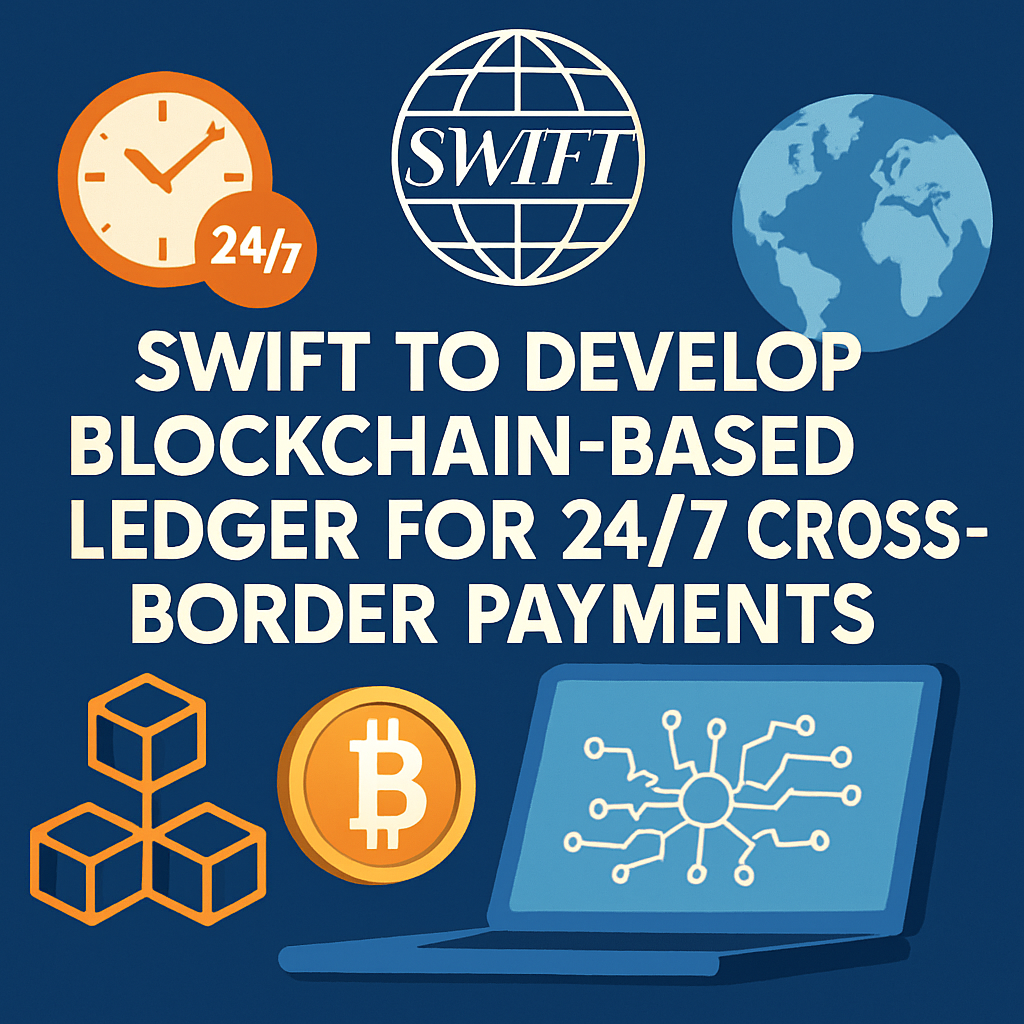SWIFT, the global messaging backbone for international bank payments used by over 11 000 institutions in more than 200 countries, has announced a project to develop a blockchain-based ledger designed to enable 24/7 cross-border payments. The initiative will leverage a prototype created by Consensys, the Ethereum development firm, and involve a consortium of more than 30 leading banks and financial institutions. The ledger aims to operate as a real-time, decentralized log of transactions, sequencing, authenticating, and enforcing compliance rules through programmable smart contracts.
The blockchain ledger will extend SWIFT’s traditional role from messaging to transaction settlement, addressing limitations of batch-processing paradigms that restrict payment windows to specific time zones. By providing a continuous, shared record, the system intends to reduce settlement times, increase operational transparency, and minimize reconciliation friction. Participating institutions will contribute node infrastructure, validate transactions, and access a unified protocol for transaction lifecycle management, while SWIFT will maintain governance oversight and network rules.
SWIFT’s adoption of blockchain technology follows years of experimentation with tokenization and distributed ledger pilots. Facing the threat of stablecoin platforms offering seamless value transfer, the network has emphasized the importance of evolving to meet emerging use cases. The new ledger is expected to integrate with existing SWIFT standards, such as ISO 20022 messaging formats, enabling compatibility with legacy systems and a migration path for current participants. The initiative’s governance framework will set criteria for transaction inclusion, dispute resolution mechanisms, and upgradability protocols.
Industry observers note that this project represents a significant shift for SWIFT, bridging the gap between centralized banking rails and decentralized technologies. Should the ledger achieve production readiness, it could reshape the dynamics of international liquidity, reduce counterparty credit risk, and deliver a unified infrastructure for regulated tokenized assets. The effort aligns with broader industry trends toward open finance and digital asset tokenization, positioning SWIFT as both a steward of global payment standards and an innovator in cross-border transaction capabilities.
.
Comments (0)